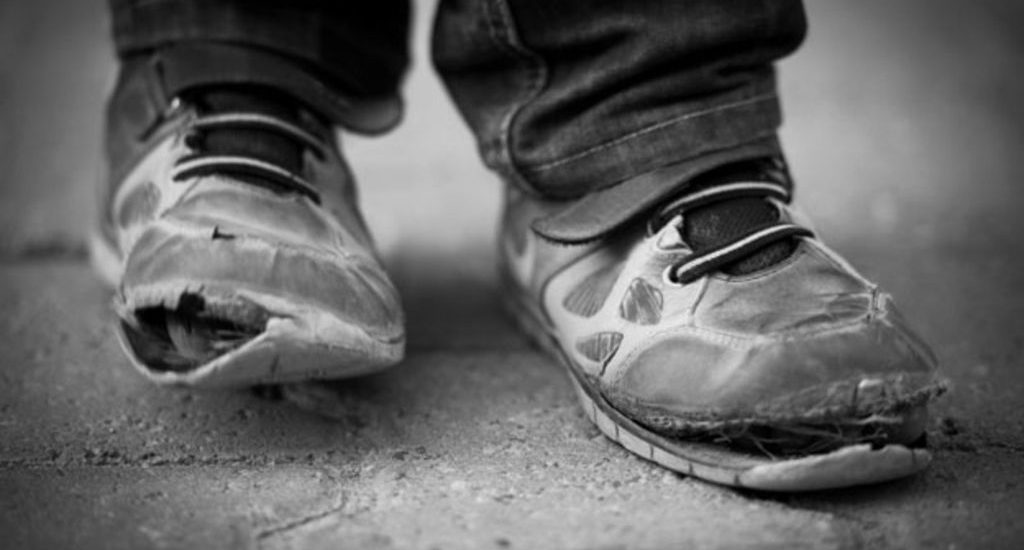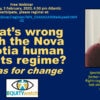
KJIPUKTUK (Halifax) – Among the people who applied for the Canada Emergency Response Benefit (CERB) while being ineligible are some of the most poor and marginalized people in Nova Scotia — people who barely scrape by on minimum wage or self-employment, people on income assistance, CPP disability supports or old age pensions.
Now the federal government is considering demanding that money paid to ineligible applicants be returned, and poverty advocates and support workers fear a perfect storm which will push many of these Nova Scotians into an even more dire financial situation.
The CRA has admitted that unclear communication may have caused people to believe they were eligible.
Some people just didn’t understand the rules, says Marg Murray, co-manager of the Canadian Mental Health Association (CMHA) Halifax-Dartmouth branch.
“There were people who had a job, but maybe didn’t meet the condition that they earned $5000 or more in the prior year. They thought it applied to anybody who worked. I know that was the case for some individuals,” Murray says. “Others had lost their job, just not because of Covid, and they didn’t understand that would disqualify them. And it was so easy to apply, most applications were accepted without any kind of checking.”
For others it was simply too difficult to turn down the opportunity.
“Some people are very vulnerable. And if somebody else says to them, just go ahead and apply, there’s no strings attached, it’s awfully hard to say no. I’m not saying it was right, I’m just saying, people shouldn’t be too quick to judge,” Murray says.
See also: Community Services abandons most vulnerable in time of crisis
The CRA has been sending letters out to some people they claim weren’t eligible, says Stella Lord, who coordinates the Community Society to End Poverty (CSEP). CSEP members represent community based agencies offering direct services or programs for people living in poverty across Nova Scotia. Other members have lived experience of poverty.
There will be more such letters, Lord believes, because people who may have been ineligible will be submitting their tax returns, not because they made enough to pay taxes, but in order to qualify for a range of federal and provincial benefits.
Ineligible Nova Scotians on social assistance will be expected to pay the money back, Lord believes. That said, Community Services regulations prescribe that the monthly amount cannot exceed $45 per month.
Federally, the government has gone on record that when repaying the CERB would cause significant financial hardship, “we will work with impacted individuals on a case-by-case basis.”
It’s too early to tell what that means. It’s very important to recognize that we’re speculating here, at this time we don’t know how any of this will play out.
That said, it would be devastating for people on income assistance and the working poor if and when the federal government decides that money owed must be returned, either through a straight up repayment scheme or through claw backs of GST rebates, guaranteed income supplements, poverty reduction credits and so on.
“The start of the pandemic was a very scary time for people. That money was needed back in March, April. How do they think people live on these pitiful amounts of money, while coping with illness, disabilities, including invisible disabilities, and chronic illness,” Murray asks.
“There’s a lot of uncertainty. People are worried. And it’s going to cause all kinds of future problems,” she says.
Prime Minister Justin Trudeau has told people not to stress about repayments. “If Canadians made a ‘good faith mistake’ when filling out the income eligibility for CERB, then they will not be punished,” he said late last year.
However, the issue is a bit of a political football, and it’s not clear what all this really means. Just three weeks ago Employment Minister Carla Qualtrough’s said that the government decided in December that forgiveness for those who didn’t qualify “wasn’t on the table.”
Campaign 2000, a broad national coalition of groups fighting child and family poverty, is calling for a repayment amnesty for families whose incomes are close to or below the poverty line, and fair reduced repayment plans for those close to these low income thresholds.
Stella Lord is unambiguous about what the federal government should do.
“Distinguishing between those people who made an honest mistake and those who didn’t is going to be incredibly difficult. So just declare an amnesty and get on with it,” Lord says.
See also: “They don’t feel valued as humans” – Covid, mental health and the very poor in Nova Scotia
Check out our new community calendar!
With a special thanks to our generous donors who make publication of the Nova Scotia Advocate possible.
Subscribe to the Nova Scotia Advocate weekly digest and never miss an article again. It’s free!




Kendall Worth here!
As the a writer for the Nova Scotia Advocate who fallows up on the poverty issues in the city and then reports on them, I just want to say that even know I did no do my own story yet on repayment of the CERB, I had been fallowing up on this whole thing and keeping an eye on this CERB issue.
I had in my back of my mind thinking about writing a story on this soon, however thankfully anyone whom I personally know that has been receiving the CERB has at least not as of yet received a letter say they had to pay it. However certainly this is lots of talk in the community about this whole CERB repayment issue.